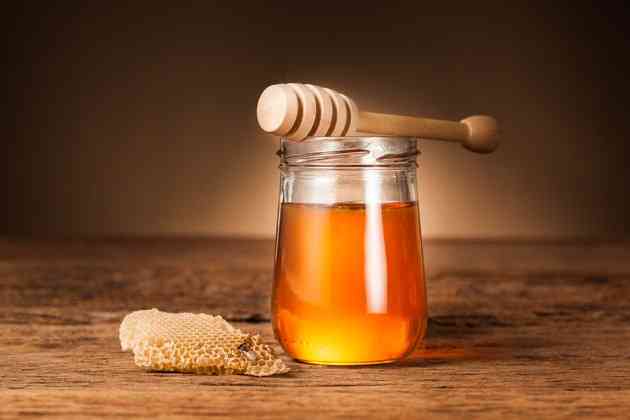Severe Sore Throat Remedies While Breastfeeding

Nursing mothers get sick just like anyone else. When a viral or bacterial infection brings on a severe sore throat, it's natural to be concerned about the possibility of medications passing into the breast milk and potentially harming the baby. Although nothing will shorten the duration of a sore throat brought on by virus -- the most common cause of sore throat -- there are options that may ease the discomfort of a sore throat that are safe for the baby.
 Honey in a jar next to honeycomb on a wood table. (Image: HEMARAT/iStock/Getty Images)
Honey in a jar next to honeycomb on a wood table. (Image: HEMARAT/iStock/Getty Images)Salt Water
Salt water is a common remedy to ease upper respiratory discomfort in general and sore throats in particular. The American Academy of Otolaryngology -- Head and Neck Surgery recommends gargling with a mixture of 1/4 teaspoon of salt to 1/2 cup of warm water several times daily for a sore throat. If you have cold symptoms along with a sore throat, rinsing your nose with a commercial or homemade salt water solution, or saline, temporarily clears nasal mucus that can trigger cough and irritate a raw throat. Neti pots and squeeze bottles with premeasured salt powder are available in most pharmacies.
Honey
Honey is a natural healing remedy for many complaints, including sore throat -- particularly if accompanied by an aggravating cough. Honey is a demulcent, meaning it coats and temporarily soothes irritated tissues, such as the throat. It has also been shown in laboratory experiments to have antibacterial, antiviral and antiinflammatory properties. According to a December 2007 "JAMA Pediatrics" study, taking honey at bedtime led to less coughing and better sleep among children with colds. While nursing mothers haven't been studied specifically, it is reasonable to expect similar soothing effects. Although honey should not be given to children younger than 1 year because of a risk for infant botulism, there is no known risk for nursing mothers or their babies.
Hot and Cold Fluids
Although research proving effectiveness is limited, many people find herbal tea comforting for sore throats. Licorice root, slippery elm bark and marshmallow root teas are often recommended for sore throats. Like honey, these herbs are believed to act as demulcents in the throat. A proprietary tea blend containing these 3 herbs (Throat Coat) has been shown to relieve sore throat for 30 minutes, according to an April 2003 "Journal of Alternative and Complementary Medicine" article. While warm drinks are most comforting for some people with a severe sore throat, others find cold drinks and foods relieve their pain. Just as ice on a swollen ankle can reduce pain and swelling, cold drinks may be soothing for a sore throat.
Over-the-Counter Throat Products
Many over-the-counter throat lozenges and sprays contain low-strength numbing medicines, such as benzocaine (Cepacol, Chloraseptic), dyclonine (Sucrets) and dilute phenol (Chloraseptic spray), that temporarily ease throat discomfort. These medicines have not been specifically studied in women who are breastfeeding. However, LactMed -- a National Institutes of Health database on drug safety and breastfeeding -- states that taking benzocaine is not likely to affect a breastfed baby. A study of 165 people with sore throats found benzocaine lozenges provided significant relief from throat pain within 20 minutes, as reported in the February 2012 issue of "European Archives of Oto-Rhino-Laryngology." Although over-the-counter throat lozenges and sprays are unlikely to cause problems if used according to instructions, nursing mothers should talk with their healthcare provider before using them.
Pain Relievers
Over-the-counter pain relievers have been shown to relieve sore throats. A May 2011 "Journal of Family Practice" review article notes that ibuprofen (Advil, Motrin) relieved sore throat pain more effectively than acetaminophen (Tylenol). While ibuprofen and acetaminophen pass into breast milk, the amounts are very low. Both of these pain relievers are considered safe while breastfeeding, according to LactMed. Aspirin, however, is best avoided because it is excreted in significant amounts into breast milk and can potentially cause problems in the baby.
Warnings and Precautions
Most sore throats are caused by viruses. But they can also be caused by bacterial infections, as with strep throat, which may require antibiotics. Warning signs that you should be evaluated by a healthcare provider include the rapid onset of an extremely sore and red throat, swelling on one side of the throat, pain or difficulty swallowing, fever and chills, stomach pain, headache and pus on tonsils. It's always a good idea to talk with your healthcare provider before taking any medicines or supplements while you're breastfeeding.




